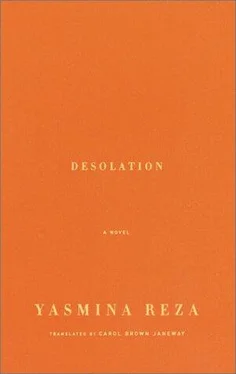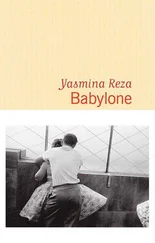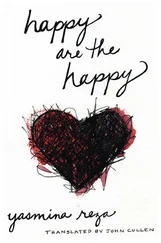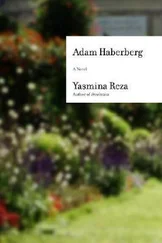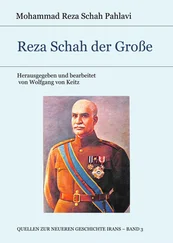O God, grant me the power to relive one day, one hour of the era of obsessions!
Make me a lunatic, a fanatic, a criminal if you want. Give me back a horror of peace and quiet in any form. In the deadly light of the sun at Longchamp stands a man who disgusts me, a worm-eaten creature, a shadow, a man from the suburbs of manhood.
“Every year,” she goes on, “I go and leave a stone on Leopold’s grave along with a little bunch of violets. His wife wrote me a letter after he died. She knew.”
I nod. What is there to say to that? The body can do what it likes, the soul will tell itself any story it chooses. We are only kissing the masks that hide the face of abandonment. The ending of Leo Fench and Genevieve Abramowitz, whom we watched feverish and sleepless: three withered flower stalks and a pebble on a slab.
She knew, she said. I nod with appropriate gravity. Two words which are supposed to re-conjure the illusion, two words to restore some apparent significance to the affair. What did she know, poor thing? What do any of us know, I thought, standing there among the flowers in these hopelessly unsuitable surroundings, since everything effaces itself with the passage of time.
Genevieve Abramowitz gives me news of Arthur, whom, with his wife, she sees regularly. “And you,” she asks, “do you still see him?”
“Less than I used to,” I say.
“He’s just bought an apartment in Israel.”
“Arthur? Where?”
“Jerusalem.”
“What on earth for?” I yell.
“To spend part of the year there,” she answers, astonished.
“I’m appalled.”
I immediately think of your brother-in-law Michel, and his discovery of the Jewish Ramblers of Île-de-France, which gives him a system for declaring he’s a little bit Jewish. Between genocide and his Sunday exertions he’s found a way to weave together his roots and his observances. Michel Cukiermann, my son-in-law: heir of suffering, pillar of the community, contemporary stand-in for the sons of Abraham, disciple of Moses. Which he’s turned to account by becoming pro-Palestinian and talking incessantly about peace. Someone you should get on with really well. Listen, I told him, let’s settle this once and for all. You want peace in Israel. Okay. Why, one wonders. You want peace over there so as not to mess up relations between Montreuil and Roissy. Ireland, where things have been going on for centuries, doesn’t enter your mind, Yugoslavia bores you, you’ve had it with Kosovo up to here, Rwanda and Cambodia zilch, but you want peace in Israel the same way Arthur has just invested in real estate in Jerusalem. A flag planted for humanism and a little patch of ground for progressive souls in the new territories. That’s your way of rebuilding the temple of Solomon.
Genevieve Abramowitz was a very fine woman. A woman with whom you could laugh, which is rare. “I’m appalled,” I said to her, “all these Jews without duties, without religious imperatives, buying their own redemption,” I go on, suddenly fired up.
She laughs. “You haven’t changed.”
“Nor you. I always liked your laugh and you still have it. To tell you the truth, I had a row with Arthur. Arthur recently told me to make a distinction between reality and my imagination. Arthur thinks the world can be considered from an objective point of view and that he’s the man to do it. The only cause of my unease, according to him, is my incurably partial view of things. He’s right. And I’m sure it was a totally objective decision, springing from his absolutely unarbitrary take on reality, when our friend Arthur Sadi, of whom no one could say that he’d breathed the air of synagogues to excess, bought himself a passport to his Jewish identity in the Holy Land.”
“But his son just married an Israeli girl!”
“So? If my son marries a girl from Tahiti, which is far from impossible in the circumstances, I’m going to go bury myself in Tahiti?”
“You know that’s got nothing to do with it.”
“It’s worse. He’s taking advantage of a marriage which is a surprise in itself, excuse me, Genevieve, to assuage some concocted nationalism that’s even more repellent than its genuine twin. Arthur will have a grandson called Ariel or Boaz, which is, I have to admit, certainly better than Jerome, and he’ll get into fights with everyone who fails to make the journey to be there for the circumcision. It all makes me sick. Tahiti doesn’t lead you that far astray. Tahiti is not an act. You have to tell me about this marriage, Genevieve. Because here’s a boy I saw being born, whose development I’ve followed with interest, with whom I always wished that my own son would have made friends, but he refused — you were horribly standoffish, my dear— a boy, all in all, who was infinitely superior to his father and whom, as you can see, I would never have suspected of needing to have his own Jewish girl, let alone an Israeli.”
“What’s the point, my friend,” she replies smack in the middle of the flowerbeds in the park at Longchamp. “What’s the point of using all these definitions with me? I’m an old lady now, I’m no longer susceptible to the charms of contrarians like you. You think you’re being provocative and you’re just being predictable” (your sister used the word dense, remember?). “Unlike Arthur I don’t think there’s any reason to reproach you for the blinkered way you see the world, but why do you feel obliged to belittle it at every given moment? Your standpoint on this story is the standpoint of someone who’s fallen out of love. As a standpoint it’s devoid of affection, it doesn’t carry much authority, if you want to know what I think, and it certainly doesn’t merit being broadcast. People we no longer love no longer carry any credit with us and everything they do seems artificial. When we’re in love, obviously,” she went on after a hesitation, “we blindly cultivate every magic pull of enchantment. . while you were drawn to Arthur, you would have accepted the apartment in Jerusalem and you would have been happy about the marriage because, please forgive me,” she adds by way of a final thrust, “you shouldn’t make yourself out to be less of a Jew than you are. You’re striking a bit of an attitude.”
“My dear Genevieve, last night I was killing time in front of the TV by watching some variety show that was raising money for charity. At a certain moment a singer delivered himself of the pronouncement that ‘As long as people love one another, the world will be saved.’ I hear this, Genevieve, the words love and hope being thrown out into empty air and all I want is to declare war on the planet. From a biological perspective, my dear Genevieve, I cannot tolerate any speeches about virtue — I don’t mean yours, which is charming and comes from someone who is authentically good and fine (and besides it’s not a speech about virtue, it’s a reproach) — I told you this anecdote to show you just how incapable I am, alas, of moderation. At the very least I know I should moderate my words. Either keeping quiet or cooling down whatever is boiling inside us should be within the grasp of any civilized human being, but I’ve ceased to want to play that role, you know, which means I’ve also ceased doing damage to my health, because always trying to be elegant and balanced was proving fatal for my nerves. No less fatal, to be honest, than the unbridled expansiveness of my moods. So, you see, I’m delivered twice over. Delivered from the paradise of temperance and delivered from the obligation of being in harmony with one’s body. No, Genevieve, I would not at some other time have accepted the apartment in Jerusalem. At some other time there would not have been an apartment in Jerusalem, at some other time Arthur would never have given in to the farce of reinventing himself as an exile. At the time you’re referring to, Arthur couldn’t endure the heat, he hated old stones and bigots, and had no thought of contributing his quota to Jewish history. At that particular time, Arthur wasn’t yet considering the world from an objective standpoint, a crowning piece of nonsense, born of who knows what, which is just tolerance by another name. Because that’s the word, the defining word at the heart of his speech, tolerance. Like a number of people who resemble him, over time Arthur concocted himself a persona of the modern man with his panoply of noble attitudes, his frenzied openmindedness, and his pact with mediocrity. No one is more contemporary than our friend Arthur. That said, Genevieve, you’re not wrong to insist that the same act doesn’t have the same value when performed by different people. If you yourself were to buy an apartment in Jerusalem, it wouldn’t be of any importance to me, any more than a pied-àterre in Cagnes-sur-Mer, who knows why that came to my mind, I’ve never said Cagnes-sur-Mer in my life before. In Arthur’s case, alas, the proceeding is not a trivial one. Arthur buys in Jerusalem to become a member of a club. The twentieth century has invented the Jew without constraints, without obligations, and without a purpose in life. Here’s someone who has lived unwittingly as the hero of his own existence and suddenly, without much of an investment, in his old age wants to become a citizen of all humanity. Member of the club of liberated Jews. What could be more select than that? Zionism and tolerance. Residency and free will. What could be more irreproachable? As for me, who have no desire to belong to any community, I don’t want to have a measured step and I don’t want to have a measured spirit, my dear, that’s the wrong pair of clippers you put in your wagon, let me show you something better and then we’ll talk about your balcony.”
Читать дальше
